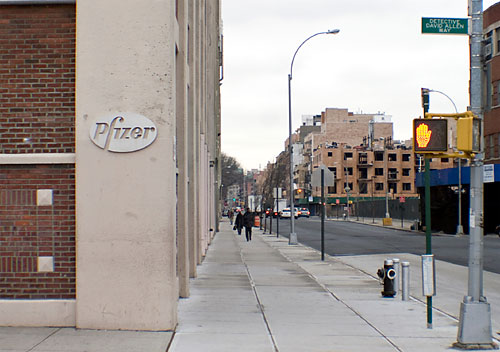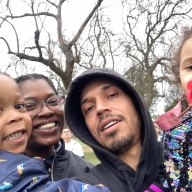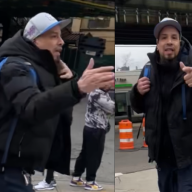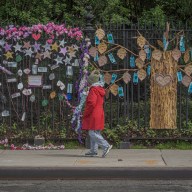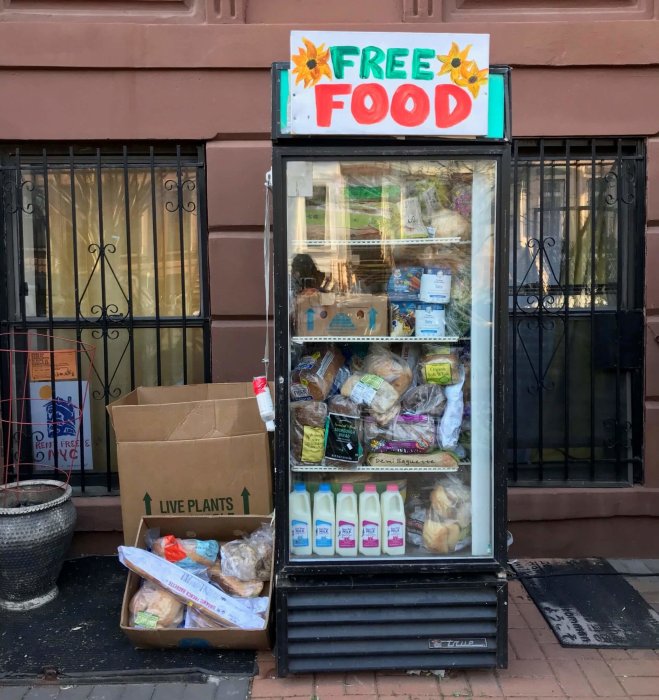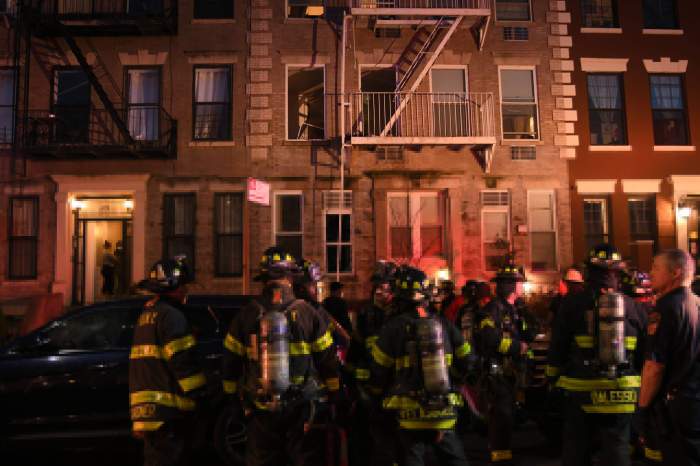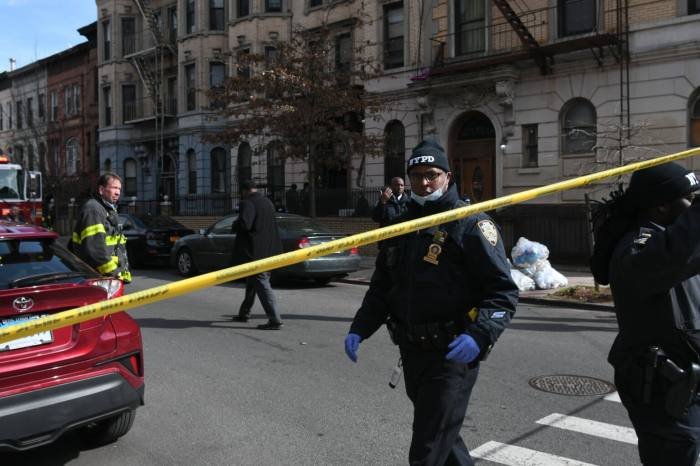Brooklyn’s first healthcare worker received the COVID-19 vaccine on Tuesday — bringing the company behind the drug back to its Brooklyn roots.
Pharmaceutical company Pfizer, which manufactured a COVID-19 vaccine along with German-based BioNTech, got its start in Brooklyn in 1849 and remained a powerhouse in the borough for more than 150 years.
German chemist and entrepreneur Charles Pfizer founded “Charles Pfizer & Company” with his cousin, Charles Erhart, in a red brick building on the border of Williamsburg and Bedford-Stuyvesant — a quiet area known then as the “Town of Williamsburgh,” where factories thrived because of the close proximity to Newtown Creek.
Shortly after its founding, Pfizer took off with its invention of a toffee-flavored medicine for intestinal worms known as santonin, and continued expanding in 1880 when it began producing the citric acid that is used in sodas.
But Pfizer’s biggest contribution to medicine was its breakthroughs with penicillin, which allowed the company to mass produce the antibiotic during World War II.
The pharmaceutical giant — by then one of the world’s largest drug manufacturers — went on to produce Viagra, Lipitor, and Zoloft from a sprawling plant that the company had built around its original northern Brooklyn building.
And though Pfizer would later move its headquarters into Manhattan in 1868 and open many other factories internationally, the company remained a benevolent force in Brooklyn for decades.
In oral histories recorded by the Brooklyn Historical Society, longtime factory workers remember how Pfizer helped pull southern Williamsburg through the 1970s and ’80s, and many other residents spoke of Pfizer as by and large a considerate neighbor.
In the 1980s, the pharmaceutical company offered to lease one of its buildings to the city for $1 a year in order to open an alternative public school at the behest of an educational reform group, The New York Times reported. The company funded half a million dollars worth of renovations, and the school’s principal called Pfizer whenever she needed help.
“Whenever the founding principal would have an issue, she’d call up Pfizer,” the executive director of the Beginning with Children Foundation told The New York Times in 2007. “Employees would come over and mentor our children. They’d send over engineers. They helped build our science labs.”
Pfizer treated their workers well — with senior operators making up to $30 an hour in the early aughts — until, in 2007, the drug maker cut its Brooklyn ties, selling its sprawling plant and laying off about 600 workers.
“It’s a sad day,” 16-year employee Victoria D’Agostino told Brooklyn Paper in 2007. “I put a lot of hard work and time into this place and my job disappears. I’m not happy.”
The factory building which once pumped out live-saving pills, located down the street from Woodhull Medical Center, lives to this day as a home to art studios, food manufacturers, and other businesses.


